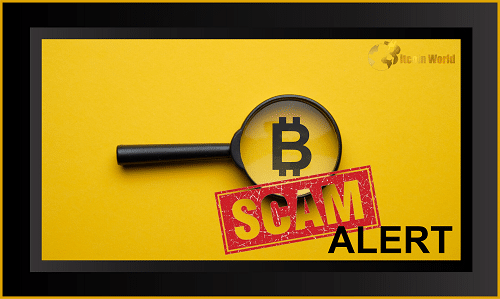Because Bitcoin is decentralized, you have total control over your investments. It also makes it more difficult to establish an effective regulatory and legal structure. Scammers may steal your BTC if they can persuade you into using Bitcoin incorrectly, and there is almost nothing you can do to get your cryptocurrency back.
Because of this, we’ll examine eight typical Bitcoin scams and how to avoid them.
Blackmail
Scammers frequently use blackmail to threaten victims with disclosing private information unless they receive payment. This payment is typically made in cryptocurrency, most notably Bitcoin.
How to Avoid – The simplest method to prevent scammers from using blackmail to force you to hand up your bitcoins is to be cautious when choosing your login information, which websites you visit, and to whom you disclose it. Additionally, whenever practical, two-factor authentication should be used.
Fake Exchange
Fake exchanges are dishonest duplicates of authentic cryptocurrency exchanges, as the term implies. These frauds are typically disguised as mobile apps, but you can also find them as desktop programs or phony websites. Because some phony exchanges closely resemble real ones, you must exercise caution. At first glance, they could appear trustworthy, but their real intention is to steal your money.
How to avoid – You should bookmark the actual URL and always double-check it before entering in to prevent being duped on a bogus exchange. Additionally, you may use Binance Verify to validate Twitter accounts, Telegram groups, and other URLs.
Fake Giveaways
Fake giveaways promise anything for nothing in return for a modest deposit in order to defraud you of your cryptocurrency. Scammers frequently request money be sent to a bitcoin address first so they can give you additional bitcoins in return (e.g., “send 0.1 BTC to receive 0.5 BTC”). But if you carry out these bitcoin transactions, nothing will be given to you, and your money will be gone forever.
How to avoid – Never taking part in any contest where you have to submit something of value first can help you avoid false giveaway scams the best. Genuine giveaways never request payment.
Social Media Fraud
Like bogus gifts, social media phishing is a typical Bitcoin fraud that you will almost certainly encounter. Scammers will set up accounts that appear to belong to prominent figures in the cryptocurrency industry (this is also known as impersonation). They will then use direct chat messages or tweets to advertise phony freebies.
How To Avoid – The simplest approach to prevent falling victim to social media phishing scams is to confirm that the person is who they claim to be. On specific social networking sites, there are frequently evidence indicating this, such as blue checkmarks on Twitter and Facebook.
Pyramid And Ponzi Schemes
Two of the earliest financial frauds in recorded history are the pyramid and ponzi schemes. An investing method known as a Ponzi scheme uses the funds of new participants to pay returns to older investors. Money stops flowing when the con artist is unable to attract fresh investors.
A pyramid scheme is a business concept where participants are paid according to how many new participants they sign up. The money flow stops when no more members can sign up.
How to avoid – The easiest way to avoid falling for either of these schemes is to thoroughly investigate any cryptocurrency you plan to purchase, be it Bitcoin or an alternative.You’ve probably discovered yourself a Ponzi or pyramid scheme if the value of a cryptocurrency only depends on fresh investors or members joining it.
Final Thoughts
There are several Bitcoin scams to be aware of. However, understanding how these con games operate is a crucial first step towards entirely avoiding them. You can keep your cryptocurrency holdings secure if you can stay clear of the most prevalent Bitcoin frauds.
Disclaimer: The information provided is not trading advice, Bitcoinworld.co.in holds no liability for any investments made based on the information provided on this page. We strongly recommend independent research and/or consultation with a qualified professional before making any investment decisions.




